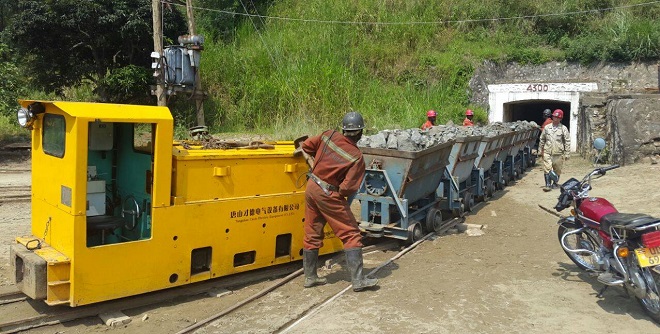
Locked up mineral wealth, fortunes: President Museveni, mineral experts, policy makers exchange ideas on way forward for Uganda’s dormant mineral industry prospects
Early this month, Uganda hosted the fifth Mineral Wealth Conference, which was organized by the Uganda Chamber of Mines and Petroleum (UCMP) under the theme, “Attracting Exploration Investment to Uganda’s Mineral Sector to realise its full potential.”
At times, there was an air of frustration inside the Serena Conference Centre from the local Chamber top executives. “We have the mineral potential but we are tired of the word ‘potential,’” said Richard Kaijuka, the vice chairman of UCMP, as he welcomed a panel of regional mining experts to discuss what Uganda needs to do to ‘move to the next level.’ “We cannot work [anymore] with bureaucratic and slow processes,” he said. Interestingly, Kaijuka’s counterparts and experts from DR Congo, Tanzania, South Sudan, Nigeria and Botswana preached caution, saying Uganda should not cut corners. Uganda has to come up with an internationally competitive legal and regulatory regime and grow local talent to spur the industry, they said.
The conference attracted a wide array of stakeholders including; mining companies already exploring for various minerals in the country and potential prospectors. It also had investment bankers, insurance firms, and regional chambers of mines, Uganda’s development partners, local and international fiscal and legal advisory firms, among others.
As he has done in the previous four conferences, President Yoweri Museveni was the chief guest at the two-day event. Speakers included government officials, regional mining executives, development partners [the AU, UNDP, UNICEF, the African Development Bank and the Democratic Governance Facility] among others.
The guest speakers discussed a range of subjects including; Uganda’s investment opportunities, the pan-African and regional geological initiatives, while executives who have already set up shop in the country shared their hopes and frustrations of investing in Uganda. The other hot topics were insurance and risk management in the mining sector, the public-private partnership model for mineral exploration and the rather ambivalent place of artisanal and small scale miners in Uganda.
Mineral rich yet still poor
When the government first announced in 2012 that the country was rich with deposits of high-value minerals, thanks to data collected after an airborne geological survey covering about 80% of the country, Ugandans hoped that the local mining sector would finally take off and attract investments from some of the global mining giants.
The survey released just before the first ever Mineral Wealth Conference in October 2012, showed that the country is endowed with, gold, limestone, uranium, marble, graphite, gypsum, iron ore, wolfram, nickel, copper, cobalt, tin, rare earth elements among others. But four years on, Uganda is yet to attract the ‘giants’ of the industry.
It is this slow progress in the mining sector that motivated the UCMP to position the 5th mineral wealth conference towards attracting investment into exploration of Uganda’s mineral resources.
In his speech, Museveni said the government is working towards scraping ‘irrational’ taxes that some investors in the sector have been complaining about.
“We don’t have to tax someone when they are not earning [during] exploration but that [taxation] can then be tied with production after the exploration.”
The President said the government now provides a ten-year tax holiday for companies wishing to set up here and do beneficiation of strategic minerals and companies that want to bring in exploration equipment can do so tax-free.
Museveni said what Uganda wants is exploration of minerals, adding value to the minerals within the country in order to create jobs “but not these small issues of taxation, which is frightening the people who come here.”
Still, Museveni noted that the government will insist on adding value onto its minerals because export of raw minerals is [perpetuating] colonialism.
“We don’t want to be in that type of relationship especially when it involves the big minerals like iron ore.”
Museveni said in the past he has refused to deal with Indian investors who wanted to export iron ore to India at $36 per tonne while the same goes for $500-600 after refining.
“For a tonne I sold at $36, someone [else] would get $500; that one I cannot accept,” he said.
Indeed, Elly Karuhanga, the chairman of UCMP, wondered why nations like South Africa and Botswana run their economies on mining yet the contribution of Uganda’s mining industry now stands at just under 1% – a far cry from the 1950s and 1960s, when up to 30% of the country’s GDP came from the mining industry.
Exploration dilemma
Since 2009, weaker demand from China, the biggest consumer of industrial commodities in the world, has caused commodity prices to fall to the lowest levels and as a result, investment in exploration, which is the lifeblood of the mining business all around the world, remains subdued.
According to SNL Metals and Mining, global exploration spend declined 26% in 2014, with budgets falling to $11.4 billion compared to a peak of $22 billion in 2012. Mining industry experts are still not sure how long it will take for the world to erode the bulging stockpile of metals, coal and iron ore.
But according to a 2016 report prepared by Deloitte on global mining sector prospects, big mining companies may be missing a window of opportunity if they do not take action quickly.
 The Independent Uganda: You get the Truth we Pay the Price
The Independent Uganda: You get the Truth we Pay the Price



